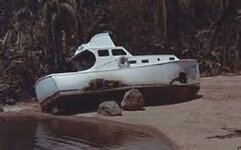- Messages
- 1,257
- Reactions
- 2,484
I had a job offer in PR, But I'm getting too old for that kind of work.
I do have contact with friends working there. The locals believe that the Americans will do it all for them! They tried hiring guy's to sweep off the airport runways and clear the debris so that they could land more aircraft. But the locals won't work! The same on the waterfront, They need debris removed by hand, but can't hire any workers.
A friend thinks that soon they will be trading a days work for food and water! At that point it will be too dangerous to work there! DR
I do have contact with friends working there. The locals believe that the Americans will do it all for them! They tried hiring guy's to sweep off the airport runways and clear the debris so that they could land more aircraft. But the locals won't work! The same on the waterfront, They need debris removed by hand, but can't hire any workers.
A friend thinks that soon they will be trading a days work for food and water! At that point it will be too dangerous to work there! DR












